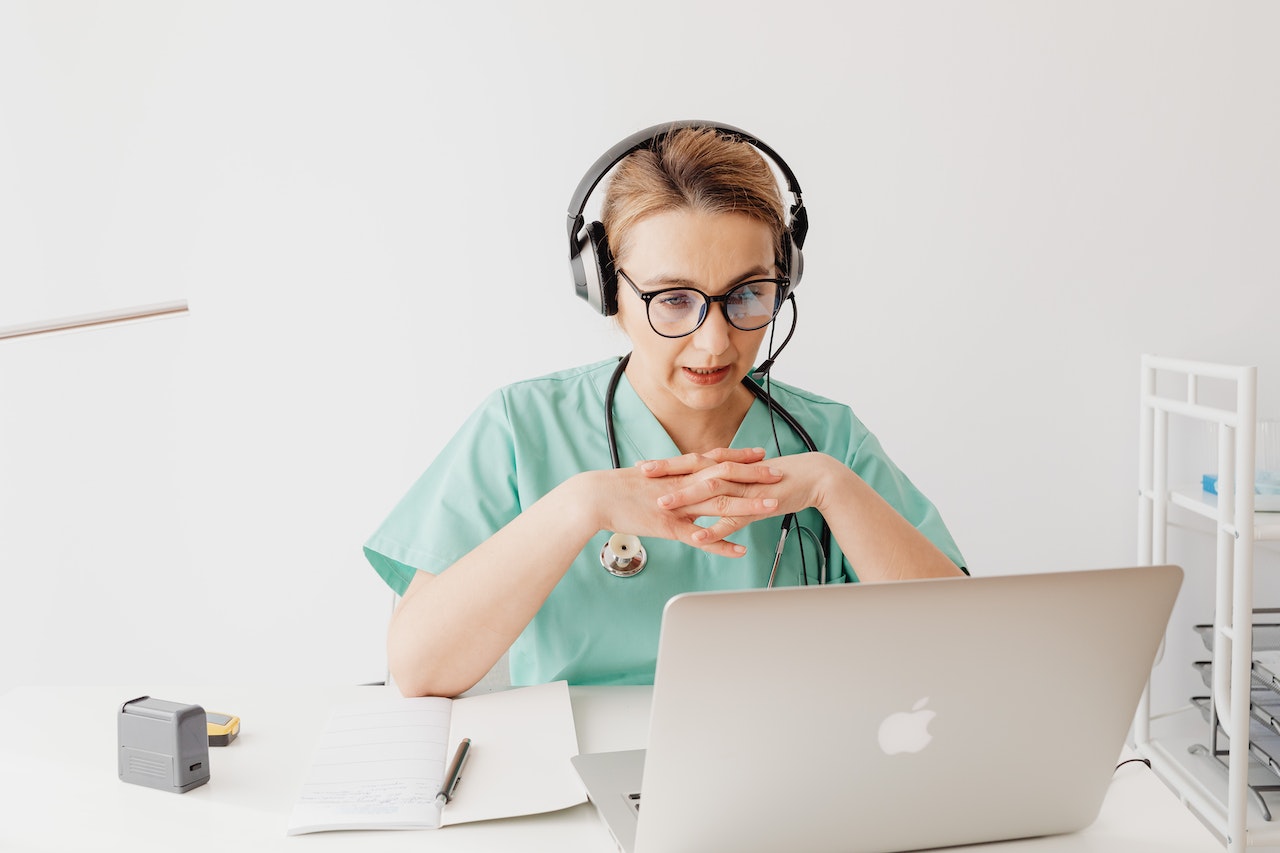There’s been a lot of questions in regards to MSP’s recent updates and change to Telehealth fee codes along with the new temporary COVID-19 codes. In an effort to help clear up confusion, here’s some answers to frequently asked questions that were originally put together by Doctors of BC.
Please remember that at this time, Dr.Bill has extended support hours from 8am to 8pm (province-wide). If you’re unclear on anything below don’t hesitate to reach out – we’re here to help.
COVID-19 Billing Changes FAQ
-
Family Physicians: Answers to your frequently asked questions
-
Specialist Physicians: Answers to your frequently asked questions
What changed? When is it effective?
Effective date: March 13, 2020.
The bold wording is new in the following Preamble D.1 Telehealth Services:
“Telehealth Service” is defined as a medical practitioner delivered health service provided to a patient through the use of video technology or telephone. “Video technology” means the recording, reproducing and broadcasting of live visual images utilizing a direct interactive video link with a patient. Services which are designated as Telehealth services are payable by MSP. Consultations, office visits, and nonprocedural interventions where there is no Telehealth fee may be claimed under the face-to-face fee with a claim note record that the services was provided via Telehealth. Telehealth services do not include teleradiology or tele-ultrasound, which are regulated by their specific Sectional Preambles.”
What the changes mean:
All physicians, including locums, can use the Telehealth (video or telephone) fee codes that are available within your specialty. You can provide Telehealth Services from any location where you have privacy, for example, your home if you’re in quarantine or self-isolation.
Always bill for telephone ‘visits’ using the appropriate Telehealth code. Only if there is no existing Telehealth fee code then you’re allowed to bill the in-person fee codes. If that’s the case then you need to add a note in the note’s section of the claim stating that the service was provided via Telehealth.
Specialist Telehealth (video or telephone) fee codes apply regardless of location.
Services directly related to COVID-19 should include the diagnostic code C19. You should continue to use your professional judgement to determine whether the use of Telehealth (video or telephone) is clinically appropriate based on the circumstances of each patient. This includes any discussions where COVID-19 is the topic and is not restricted to patients who are seeking testing or have been tested.
For more on Virtual Care during COVID-19 check out our complete guide.
A word about privacy and security:
During times of medical emergency, whether caring for an individual patient or a large-scale public health crisis, you should always give priority to providing patient care to the best of your ability.
In the current situation physicians’ office practices and delivery of care may be significantly impacted. You should continue to act in the best interests of your patients and may need to adapt and be resourceful in a rapidly changing and challenging environment. Telehealth (video or telephone) care is one important way you can continue to care for patients while keeping your patients as well as yourself and your staff safe. Choose tools that work well for you and your patient regardless of whether they formally meet privacy and security requirements. That is secondary to delivering care.
Question: Can patients provide verbal consent for the Telehealth/virtual health visit (and have this be documented in the chart), or do they still need to sign a written consent?
Answer: You may obtain verbal consent and document in chart.
Two new fee codes for COVID-19 related services
These two new fees can be billed in addition to a Telehealth service (video or telephone) on the same day for the same patient. These fee codes are for in-person office visits.
T13701 Office Visit for COVID-19 with test $50.00
Guidelines:
-
Only payable for patients with suspected or active COVID-19 symptoms.
-
COVID-19 testing must be performed.
-
Not payable for providing general information on a viral infection, including COVID-19.
-
Not payable in addition to any other office visits to the same physician for the same patient, on the same day.
T13702 Office Visit for COVID-19 without test $40.00
Guidelines:
-
Only payable for patients with suspected or active COVID-19 symptoms.
-
Not payable for providing general information on a viral infection, including COVID-19.
-
Not payable in addition to any other office visits to the same physician for the same patient, on the same day.
Question: Are the two new temporary fee codes for COVID-19 eligible for the Business Cost Premium (BCP)?
Answer: Yes, fee codes T13701 (Office Visit for COVID-19 with test) and T13702 (Office Visit for COVID-19 without test) are both eligible for the BCP, as Visits are considered an eligible service under the BCP criteria.
Family Physicians: Answers to your frequently asked questions
Until further notice, family physicians providing medical services by phone to patients may use 13037 instead of 14076.
However, Telehealth (video or telephone) fees may not be delegated and billed to MSP. Continue to use 14076 when delegating a phone visit to a college certified allied care provider (ACP) who is employed by your practice.
For non-procedural interventions provided by video or telephone where there is no Telehealth fee available, you can claim it under the appropriate in-person fee code with a note in the notes section of the claim stating it was provided via Telehealth.
Examples include: Long Term Care Facility visits, Palliative Care Facility visits, Group Medical Visits.
Definition of In-Office and Out of Office when using Family Physician Telehealth fee codes:
In-Office means the service is provided from a location other than a Health Authority site.
Out-of-Office means if you’re present in a Health Authority approved facility. The name of the facility and the results of the Telehealth service must be recorded in the patient chart.
In-office/Out-of-Office Tips
-
Bill 13037 for the equivalent of an in-office visit (00100, 12100, 15300, 16100, 17100, 18100) if you are physically located in your clinic/home or other location (that is not a Health Authority facility) when calling your patient.
-
Bill 13038 for a counselling visit (instead of 00120, 12120, 15320, 16120, 17120, 18120) if you are physically located in your clinic/home or other location (that is not a Health Authority facility) when calling your patient.
-
If you are physically located in a Health Authority facility when calling your patient, you can bill the GP Telehealth out-of-office fees 13016, 13017, 13018, 13021 and 13022. The name of the facility and the results of the Telehealth (video or telephone) service must be recorded in the patient chart.
If you are providing consultations by referral:
-
Bill 13036 for a consultation done when you are physically located in your clinic/home or other location (that is not a Health Authority facility).
-
Bill 13016 for an out-of-office consultation done when you are physically located in a Health Authority facility. The name of the facility and the results of the Telehealth (video or telephone) service must be recorded in the patient chart.
Question: Can I bill the age-based 0100 and 0120 series when service is provided by Telehealth (video or telephone)?
Answer: No, you must bill the Telehealth GP office visit codes 13037 or 13017.
Question: If I’m in quarantine (self-isolation), can I provide Telehealth (video or telephone) services?
Answer: Yes. Using the appropriate Telehealth fee codes in your specialty.
Question: Can I still provide and bill for consultations via Telehealth (video or telephone) without providing the face-to-face components of the consultations?
Answer: This is being left to physician discretion. If you feel you could have performed the in-person consultation without an examination, then you can bill the Telehealth (video or telephone) consultation without an examination. You should continue to use your professional judgement to determine whether use of virtual technology is clinically appropriate based on the circumstances of each patient.
Question: If I speak to my patient on the phone and determine they need to come in what do I bill?
Answer: You can bill either the 13037 for the telephone discussion or the appropriate in person fee for the service provided face-to-face. Telehealth (video or telephone) and a face-to-face service are not billable on the same patient/same day by the same physician with the exception of the two new COVID fees T13701 and T13702.
Question: If I speak to my patient on the phone and determine they need to come in, what is billed if they are seen by a different physician in our multi-physician clinic?
Answer: 13037 for the telephone discussion is billable by the first physician and the appropriate in-person fee for the service provided face-to-face by the other physician.
Question: Are the fee code changes permanent?
Answer: No, these are temporary changes under the COVID-19 pandemic environment and will be discontinued at the call of the Provincial Health Officer.
Question: Does 13037 apply to visits that are not COVID related?
Answer: Yes, this fee code and the Telehealth changes are not restricted to COVID related services. However, please be sure to use diagnostic code C19 for COVID related services.
Question: Can I swab my symptomatic or presumptive patients outside my office, such as in their cars in the parking lot?
Answer: Yes. You can also schedule these patients for the end of day or a separate day to minimize exposure risks.
Question: My patients want to have their prescriptions renewed by phone visit. Should I bill this phone call to the patient as an uninsured service or as a Telehealth service?
Answer: If you speak to the patient on the telephone about the health care issue and determine that the patient needs a new prescription or a prescription refill, you may bill this as 13037 Telehealth (video or telephone) office visit.
Question: How do these changes apply if I’m providing care to patients in Long Term Care facilities?
Answer: If the patient is able to independently use a phone and you feel that the encounter could be appropriately provided by Telehealth (video or telephone), then you will bill their face to face Long Term Care facility fee 00114 and include the claim note record “service provided via Telehealth”.
If the patient cannot independently use a phone (eg. due to dementia, hearing loss etc.) or does not have their own phone, you may review the patient’s medical status and any problems by telephone with an RN/LPN at the LTC facility, and bill the visit using 00114 and include the claim note record “Service provided via Telehealth with RN/LPN.”
Question: Can Group Medical Visits be provided by Telehealth (video or telephone)?
Answer: Yes, this would be considered a non-procedural intervention and if you can arrange for the group to be held via Telehealth (video or telephone), then you can claim it under the face-to-face fee and enter “service provided via Telehealth” in the note section of the claim.
General Practice Services Committee Initiatives
Question: We’ve delegated phone calls to patients to our office nurses in the past, using 14076. Since we’re now able to bill 13037 for phone calls, does that apply to nurses?
Answer: The 13037 cannot be delegated and billed to MSP. Continue to bill 14076 when delegating a phone visit to a College-certified allied care provider (e.g.: Nurse, Nurse Practitioner) employed by your practice.
Remember, the task of relaying physician advice to a patient may be delegated to any Allied Care Provider or MOA working within the physician practice and billed as 14078.
Question: What about GPSC Chronic Disease Management fees 14050, 14051, 14052, 14053?
Answer: There is no change to the fee rules for the GPSC CDM fee codes. Existing rules already allow one of the two required visits to be provided by Telehealth.
Question: Can GPSC incentives be billed together with the Telehealth billing codes?
Answer: Doctors of BC are working with GPSC and MSP on this answer.
Question: Can the General Practice Services Committee fee codes (14033, 14043, 14063, 14066, 14075) be performed via Telehealth (video or telephone) and billed with the claim note record “service provided via Telehealth”?
Answer: Doctors of BC are currently working with GPSC and MSP on this answer.
Specialist Physicians: Answers to your frequently asked questions
Question: What about the face-to-face requirements of the consultations?
Answer: This is being left to physician discretion. If you feel you could have performed the in-person consultation without an exa
mination then you can bill the Telehealth (video or telephone) consultation without an examination.
If the Telehealth (video or telephone) consultation results in an examination being required then you should bill the first encounter as a visit and when the patient comes into the office then bill the consultation code.
Question: If I’m in quarantine, can I provide Telehealth (video or telephone) services?
Answer: Yes. Using the appropriate Telehealth fee codes for your specialty.
Specialist Services Committee Initiatives
Question: Will the rules be relaxed for the Specialist Services Committee fee items?
Answer: This is currently being discussed with the Ministry of Health.
WorkSafeBC and ICBC services
Effective immediately WorksafeBC and ICBC will permit Telehealth (video and telephone) for anything that does not require a physical exam/assessment.
Details are below, but if you encounter any problems then contact the regular ICBC/WorkSafeBC contacts (as listed below).
These changes will be in effect until an end date can safely be determined. ICBC will be pausing all Driver’s Medical Examinations.
A Message From WorkSafeBC:
-
The requirement that Telehealth fees must involve video technology has been expanded to include telephone. Therefore, if you conduct services via telephone you can bill the appropriate Telehealth fee codes in your Fee Guide. This includes services for all patients including COVID-19 patients.
-
Consultations, office visits, and non-procedural interventions where there is no Telehealth fee may be claimed under the face-to-face fee with a claim note record and document on the consult report or physician’s report (Form 8/11) that the service was provided via video technology or telephone are payable by WorkSafeBC
You should continue to use your professional judgement to determine whether use of virtual technology is clinically appropriate based on the circumstances of each patient. If you have any questions please contact Health Care Services at HCSINQU@worksafebc.com.
A Message From ICBC:
-
Physicians are encouraged to deliver necessary care to ICBC patients by accessing available Telehealth (video or telephone) services and billing the Telehealth or applicable non-procedural fee code and making a notation in the patient record. Additionally, the Physician Telephone Management Fee code can also be leveraged in appropriate cases, invoiced directly to ICBC as outlined in the ICBC Fee Guide.
-
Initial visits for the evaluation of recent injuries sustained by your patients may be scheduled in-clinic on an as-needed basis. Initial and Reassessment visits for the preparation of requested reports should be rescheduled in support of reducing non-essential in-person visits. When in-person visits can be resumed, these visits that require a physician exam to complete a report can be rescheduled.
You should continue to use your professional judgement to determine whether use of Telehealth is clinically appropriate based on the circumstances of each patient. ICBC’s Health Care Inquiry Unit is available to support most general and claim-specific questions, by calling 1-888-717-7150.
If you have any questions about anything above please get in touch. We’ve extended our support hours and are here to help.
This article offers general information only and is not intended as legal, financial or other professional advice. A professional advisor should be consulted regarding your specific situation. While information presented is believed to be factual and current, its accuracy is not guaranteed and it should not be regarded as a complete analysis of the subjects discussed. All expressions of opinion reflect the judgment of the author(s) as of the date of publication and are subject to change. No endorsement of any third parties or their advice, opinions, information, products or services is expressly given or implied by RBC Ventures Inc. or its affiliates.






